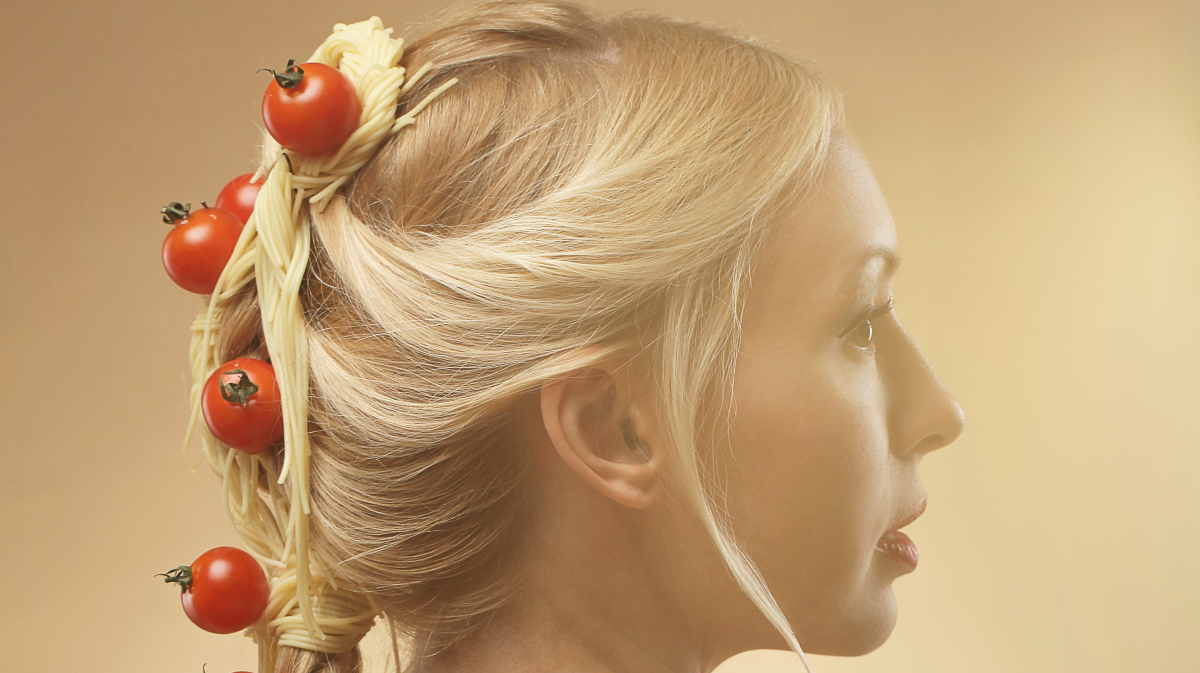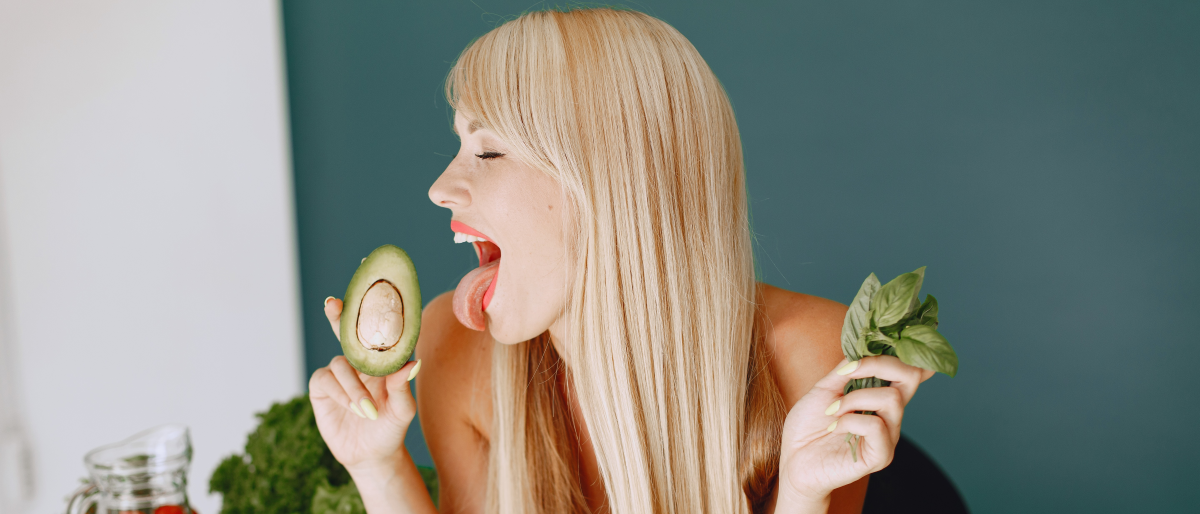The Great Hair Diet- Foods for Healthy Hair
The Role of Nutrition in Hair Growth
Nutrition significantly influences hair growth, so lets talk about what is a Great Hair Diet. Achieving thick, beautiful hair requires a diet that nourishes the scalp and follicles. Healthy hair is admired by many as a sign of beauty and wellness. For women especially, it symbolizes femininity and vitality. The nutrients we consume and the care we give ourselves are visibly reflected in the quality of our hair.
Non-Dietary Methods for Hair Health
Other care routines contribute to healthier hair. Regular shampooing keeps the scalp clean, removing dirt and buildup that can weigh hair down. Avoid using hot styling tools, as they can strip hair of moisture and cause damage. Comb hair only when it’s dry, as wet hair is more fragile and prone to breakage. These practices help maintain the strength and natural shine of hair.
Key Factors Affecting Hair Growth
Understanding what impacts hair growth is essential to maintaining its health. Sun exposure is a common but overlooked factor, as UV rays can damage hair by causing photo-aging and dryness. This exposure affects the chemical makeup of hair, resulting in weakened strands. Getting adequate rest is also critical; aim for at least seven hours of sleep per night. Insufficient rest disrupts various bodily processes, including hair growth. Stress affects the hair cycle, putting more follicles into the resting phase, which hinders growth. Managing stress through relaxation techniques can positively influence hair health.
Lifestyle Choices Impacting Hair
Lifestyle choices, such as smoking and excessive alcohol consumption, have been linked to baldness and premature hair aging. These habits can compromise scalp health, affecting hair growth. Regular exercise, on the other hand, promotes blood circulation, ensuring better oxygen and nutrient supply to the scalp. This process supports healthier hair and scalp. Choosing natural, herbal-based products for hair treatment is also recommended, as some commercial products contain harsh ingredients that may harm the scalp or hair structure.
The Structure of Hair and Its Nutritional Needs
Learning about hair’s structure reveals the nutrients it requires. Hair is composed of hard proteins, primarily keratin, made from amino acids. It is divided into two parts: the shaft, which is visible, and the hair follicle, which is embedded in the skin. Since hair relies heavily on protein for strength and growth, a diet rich in protein helps maintain its health and resilience.
Great Hair Diet
Eggs: A Rich Source of Protein and Biotin
Eggs are a highly nutritious choice for promoting hair growth, as they contain both protein and biotin. Hair follicles are primarily made of proteins, while biotin supports the production of keratin, an essential hair protein. A lack of biotin or protein in the diet has been linked to hair loss. Eggs are versatile in cooking, whether fried or boiled, making them an easy addition to any meal. Along with protein and biotin, eggs provide calcium, selenium, and zinc—minerals vital for hair health.
Spinach: Essential Nutrients for Hair Growth
Spinach offers a rich blend of nutrients beneficial to hair, including vitamins A, C, iron, folate, and beta carotene. These vitamins play a crucial role in supporting the sebaceous glands, which produce sebum, the scalp’s natural oil. Sebum keeps hair moisturized and prevents dryness. Combining spinach with kale or other leafy greens further boosts nutrient intake, creating a well-rounded meal that benefits both scalp and hair.
Groundnuts: Selenium and Omega-3 Benefits
Groundnuts, especially Brazilian varieties, are packed with selenium, a mineral essential for a healthy scalp. They also contain omega-3 fatty acids and linoleic acid, both of which help repair damaged hair. Nuts are linked to additional health benefits, such as reducing inflammation and decreasing the risk of heart disease, making them a well-rounded option for overall wellness.
Berries and Carrots: Antioxidants and Vitamins
Berries and carrots are rich in antioxidants, which play a role in protecting hair from premature aging. Antioxidants in berries help prevent damage to hair follicles from free radicals. Carrots, renowned for their beta-carotene and vitamin A content, also contribute to a healthier scalp. Including these foods in your diet can improve hair vitality and prevent breakage.
Lean Poultry: A Protein Source for Hair
Protein is vital for hair and overall body health. Lean poultry, such as turkey and chicken, provides essential protein without excessive fats or cholesterol. This protein helps strengthen hair and supports growth. Poultry is also a good source of iron, zinc, and selenium, which contribute to hair health. Including lean meat in your meals is a beneficial choice for both hair and body.
Oysters and Salmon: Omega-3 and Zinc-Rich Options
Oysters and salmon are excellent sources of omega-3 fatty acids and zinc. Omega-3s, found in salmon, promote scalp hydration, which is essential for vibrant hair. Zinc, commonly found in oysters, aids in scalp health, preventing dryness and dullness. Serving these seafood options once a week can enhance hair quality and promote a healthier scalp.
Sweet Potatoes: Beta Carotene for Scalp Health
Sweet potatoes are high in beta carotene, an antioxidant that the body converts into vitamin A. This vitamin plays a key role in preventing hair dryness and promotes sebum production, which keeps hair naturally moisturized. Beta carotene is also found in other foods like carrots, mangoes, and cantaloupe, making it easy to add to your diet.
Beans and Lentils: Protein and Biotin Powerhouses
Beans and lentils are valuable sources of protein, iron, and biotin, essential for hair strength. Biotin deficiencies can lead to brittle, dry hair, so including these legumes in meals supports both hair and body health. The iron in these foods also aids in maintaining a robust circulatory system, which supplies hair follicles with the nutrients they need.
Cinnamon: Enhancing Blood Circulation
Cinnamon, a common spice, improves blood flow, ensuring an adequate supply of oxygen and nutrients to hair follicles. Adding cinnamon to meals or beverages can subtly boost hair health, promoting a stronger scalp and healthy hair growth.
A Balanced Diet for Optimal Hair Health
Maintaining a well-rounded diet with these nutrient-rich foods can maximize hair growth and minimize shedding. This balance supports the entire hair growth cycle, leading to stronger, more resilient hair. Regularly incorporating these foods will improve hair health and maintain its natural shine.
Professional Hair Care Advice
For those seeking expert hair care, consulting a professional can provide tailored advice. In Sydney, Nicole Hudson’s salon in Caringbah offers personalized hair care solutions, helping clients achieve their healthiest hair.

The Australian Hair Diet
1. Can a poor diet really cause hair loss?
Yes, a poor diet lacking essential nutrients, like protein, vitamins, and minerals, can lead to hair loss. Nutritional deficiencies weaken hair follicles and disrupt the hair growth cycle, causing hair to shed faster. Ensuring a balanced diet with adequate nutrients can help maintain hair health and reduce the risk of hair thinning.
2. What are the most important nutrients for healthy hair?
Protein, biotin, vitamins A, C, D, and E, and minerals like iron and zinc are crucial for healthy hair. Protein is necessary for strong hair structure, while biotin supports keratin production. Vitamins and minerals help maintain a healthy scalp, reduce breakage, and promote hair growth. A diet rich in these nutrients supports the entire hair growth cycle.
3. How long does it take for dietary changes to affect hair growth?
Typically, it takes a few months for dietary changes to visibly affect hair, as hair grows around half an inch per month. After making positive dietary adjustments, you may start noticing healthier hair texture and reduced shedding within 3-6 months. Consistent healthy eating supports sustained growth over time.
4. Can supplements improve hair health if my diet is lacking?
Supplements can help if your diet lacks specific nutrients, like biotin, zinc, or iron, but they should not replace a balanced diet. Whole foods provide a broad range of nutrients that are absorbed better by the body. It’s best to consult a healthcare provider to assess any deficiencies and decide on appropriate supplements.
5. Are there foods to avoid for better hair health?
Yes, limiting sugary, highly processed foods and excessive alcohol intake can improve hair health. These foods may cause inflammation and oxidative stress, which can weaken hair follicles. Instead, focus on whole foods, including lean proteins, fruits, vegetables, and healthy fats, which promote strong, vibrant hair.



